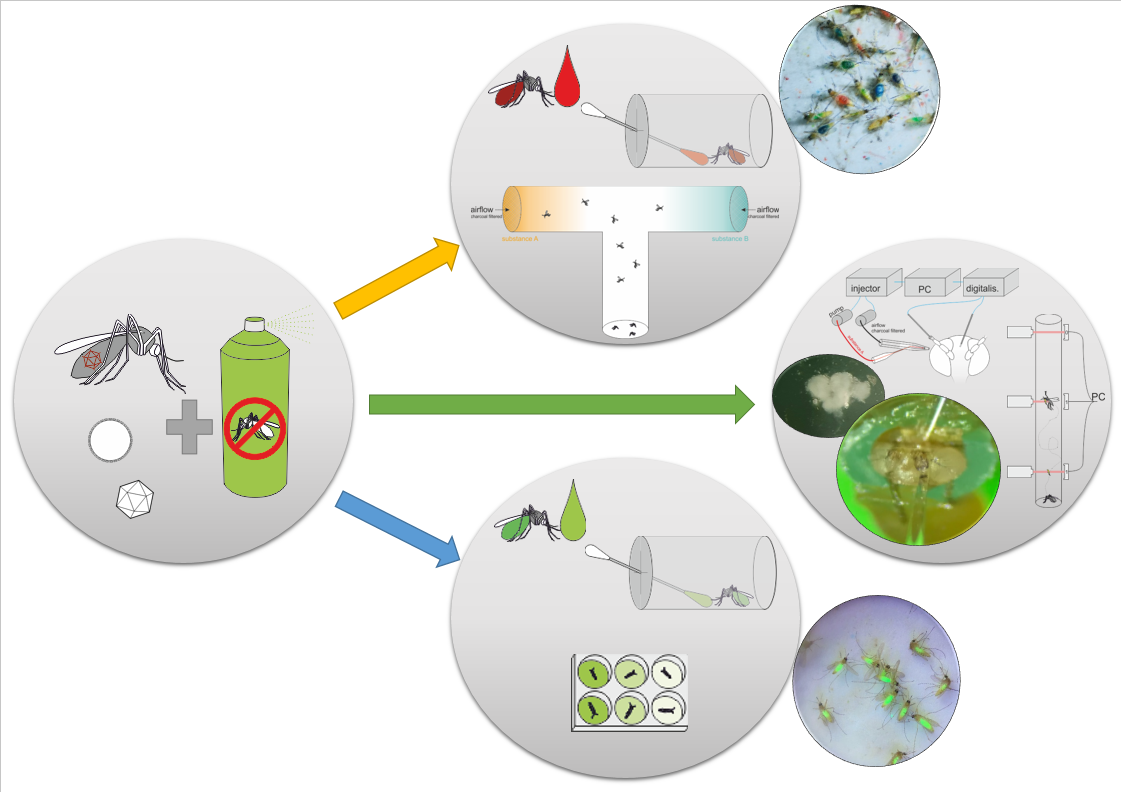Arboviral infections are caused by arboviruses which are transmitted by hematophagous arthropods, mainly mosquitoes and which repeatedly led to epidemic outbreaks in the last decades. In Germany, the most prevalent mosquito species with vectorial capacity is the indigenous Culex pipiens. For arboviral infections, vaccination is often not available and therefore vector control is crucial. The most common strategy for vector control is pesticide deployment, which can cause negative side effects for the ecosystem, and other pesticide exposed organisms. A combination of ISVs and a well-organized pesticide management can lead to effective vector control and protection of the ecosystem. Apart from arboviruses, mosquitoes are known to carry insect-specific viruses (ISVs). ISVs are described as non-pathogenic for vertebrates and have the potential to suppress arbovirus replication, which makes them more and more medically important. In this study, an interdisciplinary approach consisting of virological, behavioral and ecological perspectives is used to improve vector control measurements. The objective is to identify a suitable insect-specific virus and to establish a test system for different pesticides against mosquitoes. The newly established test systems will enable the investigation of the interaction of Cx. pipiens with insect-specific viruses and pesticides as well as the applicability of such a trilateral interaction in integrated mosquito control strategies examined. In general, two questions will be answered:
- What role do insect-specific viruses play regarding the susceptibility of mosquitoes to pesticides?
- How can insect-specific viruses be combined with an optimized insecticide management for vector control and reduction of pesticides.
Behavioral alterations impacted by virus infection through ISVs in combination with pesticide treatments will be investigated based on feeding experiments, electrophysiological measurements and activity assays.

Duration
March, 1st 2020 - February, 28th 2023
Contact
Prof. Dr. Stefanie Becker und Dr. Fanny Naccache, Institut für Parasitologie, Tierärztliche Hochschule Hannover,
PD. Dr. Michael Stern, Institut für Physiologie und Zellbiologie, Tierärztliche Hochschule Hannover und
Dr. Kwang-Zin Lee, Arbeitsgruppe Insektenpathogene am Fraunhofer Institut für Molekularbiologie und angewandte Ökologie (IME)



